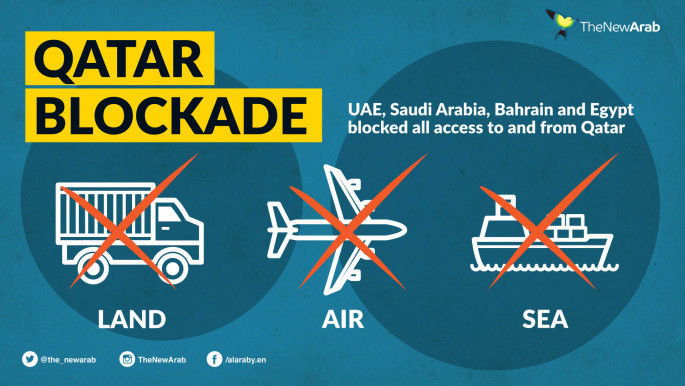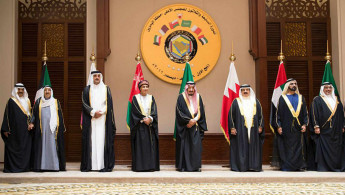GCC at stake as Bahrain suggests suspending Qatar membership
The Gulf Cooperation Council should suspend Qatar's membership until it accepts the demands of nations imposing a blockade, Bahrain's foreign minister suggested on Monday, placing the future of the council at risk.
"The correct step to preserve the GCC would be to freeze Qatar's membership until it sees reason and accepts the demands of our countries. If not, we will be fine with it leaving the GCC," Sheikh Khalid bin Ahmed al-Khalifa said on Twitter.
Bahrain, Saudi Arabia, the United Arab Emirates and Egypt on June 5 severed ties with Qatar over accusations of supporting extremism and being too close to regional rival Iran, charges Doha has vehemently denied.
Founded in 1981, the GCC is a political and economic union that includes Saudi Arabia, Bahrain, the United Arab Emirates and Qatar, as well as Oman and Kuwait.
Experts have warned that the nearly five-month-long diplomatic crisis, the worst to hit the region in recent years, could cause the six-nation bloc's demise.
Saudi Arabia and its allies in June issued Qatar with a list of demands including shutting down Doha-based broadcaster Al Jazeera and The New Arab, curbing relations with Iran and closing a Turkish military base in the emirate.
"Bahrain will not attend a summit with Qatar, which becomes closer to Iran each day and brings foreign forces (to its soil), dangerous steps for the security of GCC countries," Sheikh Khalid claimed.
GCC members are supposed to meet before the end of the year, but the crisis could see the bloc's annual meeting postponed or cancelled.
After severing ties with Doha, Riyadh and its allies closed land and maritime borders, suspended air links and expelled Qatari citizens.
Regime change
In an interview airing on Sunday, Qatar's emir accused Saudi Arabia and its Arab allies of seeking to topple his government.
"They want a regime change. It's... so obvious," Sheikh Tamim bin Hamad Al-Thani told CBS's 60 Minutes.
"History as well tells us, teaches us they tried to do that before, in 1996 after my father became the emir. So, and they made it also so obvious in the last couple of weeks."
The comments came just days after sources revealed to The New Arab that Kuwait ruler Sheikh Sabah al-Sabah prevented a formal split in the council which has been ravaged by the dispute involving Saudi Arabia, the United Arab Emirates and Bahrain.
Sources said Saudi and Emirati authorities had sought to relocate the upcoming GCC summit in December from Kuwait to Riyadh, a move that would allow the Saudis to exclude Qatar from the conference.
However calls to relocate the summit were rejected by Sabah who preferred the summit be postponed to a later time to include all six nations after solving the ongoing crisis, the sources said.
The plan to delay the summit was confirmed by a Kuwaiti foreign ministry official who told The New Arab that "it is certain that the Gulf summit in Kuwait will not be held on schedule this year and will be postponed indefinitely".
Sabah said that the current blockade on Qatar by a Saudi-led alliance risks escalating and could result in the end of the GCC's 36-year-old alliance.
"Contrary to our wishes and hopes, the Gulf crisis has the potential of escalating. Therefore, all of us must be fully aware of its potential consequences," Sabah told parliament, according to Al Jazeera.
"Any escalation will bring with it an outright call for regional and international intervention, which will destroy the security of the Gulf and its people."
The GCC's two remaining states - Oman and Kuwait - have remained neutral in the impasse.
Kuwait has taken a lead role in trying to bring about a resolution between the two sides, with the mediation role Sabah recognised in his speech.
"We are not a third party in this crisis. Rather, we are a party of one with the other two brother-nations in this crisis."






 Follow the Middle East's top stories in English at The New Arab on Google News
Follow the Middle East's top stories in English at The New Arab on Google News
![Israeli forces ordered bombed Gaza's Jabalia, ordering residents to leave [Getty]](/sites/default/files/styles/image_330x185/public/2176418030.jpeg?h=a5f2f23a&itok=_YGZaP1z)

